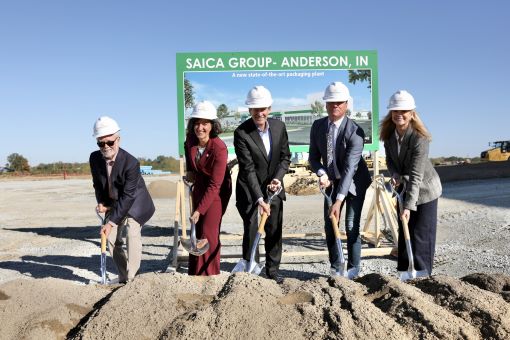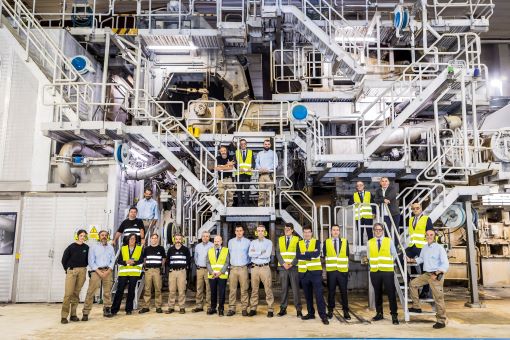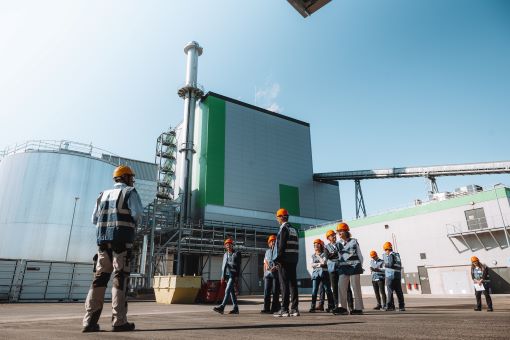Saica reinforces its commitment to decarbonisation by joining the "Science Based Targets" initiative
Zaragoza, 01 Feb 2023
• The Science Based Targets project is promoted by international non-profit organisations with the aim of helping companies to reduce their greenhouse gas emissions.
• The Group commits to define short- and long-term objectives, which contribute to keeping the earth's temperature increase below 1.5°C compared to the pre-industrial era.
The Saica Group has joined the international initiative SBTi (Science Based Targets initiative), a project promoted by the non-profit organisations CDP (Carbon Disclosure Project), UNGC (United Nations Global Compact), WRI (World Resources Institute) and WWF (World Wildlife Fund). It aims to help companies set greenhouse gas emission reduction targets based on climate science in order to limit global warming, taking every opportunity to transition to a low-carbon economy.
Upon accession, Saica has a maximum of 24 months to define short- and long-term targets and submit them to SBTi for approval, in accordance with its rules. These targets are calculated on the basis of the gas emission reductions needed, according to existing models, to keep global temperature rise below 1.5°C compared to industrial-era temperatures, in line with the COP21 agreements (Paris 2015).
The short-term target, for which SBTi acts as an independent guarantor, should have a time horizon of 5 to 10 years. On the other hand, the initiative also encourages companies to set Net Zero targets in the longer term, a target that Saica Group has also joined for 2050.
In terms of the effort to be made, in a first phase Saica will focus on finding solutions to decarbonise its production facilities, thus attacking Scope 1 and 2 emissions to, in a second pase, involve the entire value chain to find solutions that minimise the impact of the supply Chain; this means attacking Scope 3 emissions related to transport, extraction and production of raw materials or end of life of waste, amongst others.
Likewise, adherence to the initiative requires the Saica Group to publish its carbon footprint annually, so that its stakeholders can monitor progress towards the final target.
“One of the Priorities of the Saica 2025 Strategic Plan is "Orienting the business towards sustainable solutions that contribute to environmental protection and to the fight against aclimate change". This is why, in 2021, in Saica we set up a Decarbonisation Working Group, whose main objective is to find technological solutions that allow us to cover the energy needs of the Group's factories, achieving the decarbonisation objectives for these facilities", Ramón Alejandro, Chairman of the Saica Group, explained. "The current situation, where the technology necessary for the intensive use of some of these new fuels is not yet developed, may force the abandonment of some of the projects initiated. In any case, at Saica, we are convinced that R&D&I has always been a competitive advantage, so we must continue with the necessary and sufficient efforts to achieve the objectives we have set ourselves", he concluded.
Just yesterday, the President of Saica Group, Ramón Alejandro, received the "Aragón Circular" seal from the Government of Aragón as the best valued company, among the 68 that have also obtained it. The seal is a recognition to those companies that implement the circular economy in their management, therefore having an impact on their value chain. Joining SBTi is a firm commitment to where the company wants to go in the short, medium and long term on the road to a greater sustainability.
Note to the reader: Brief explanation about types of emissions:
- Scope 1: Direct GHG emissions. This scope accounts for emissions generated by a company's own or controlled sources, e.g. gas/fuel oil combustion for steam or electricity generation, diesel combustion for forklift trucks, etc
- Scope 2: Accounts for indirect - not company-generated - GHG emissions from the use of electricity and heat/cooling.
- Scope 3: Covers all other indirect emissions not included in Scope 2 that occur along a company's value chain from sources outside the direct control of the company. It includes emissions from both upstream (suppliers manufacturing parts of the company's products) and downstream (customers using the products), as well as the transport related to both.
About the Saica Group
The Saica Group is one of the leading companies in Europe in the manufacture of recycled paper for corrugated card, with a production capacity of 3.3 million tonnes. With over 10,000 employees and operations in Spain, France, Italy, Portugal, United Kingdom, Turkey, Luxembourg, Netherlands and United States, the Saica Group has four business lines: manufacture of recycled paper for corrugated card (Saica Paper), waste management and environmental services (Saica Natur), production of corrugated card for packaging (Saica Pack) and flexible packaging (Saica Flex). The Group’s turnover amounts to 4,394 million euros (consolidated turnover as of 31st December 2022).



